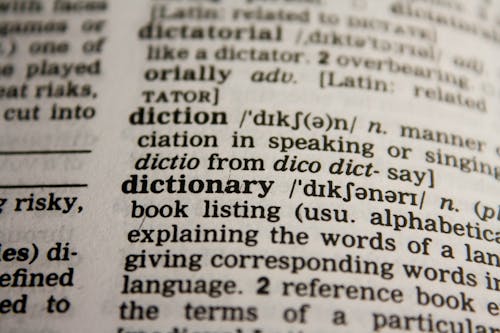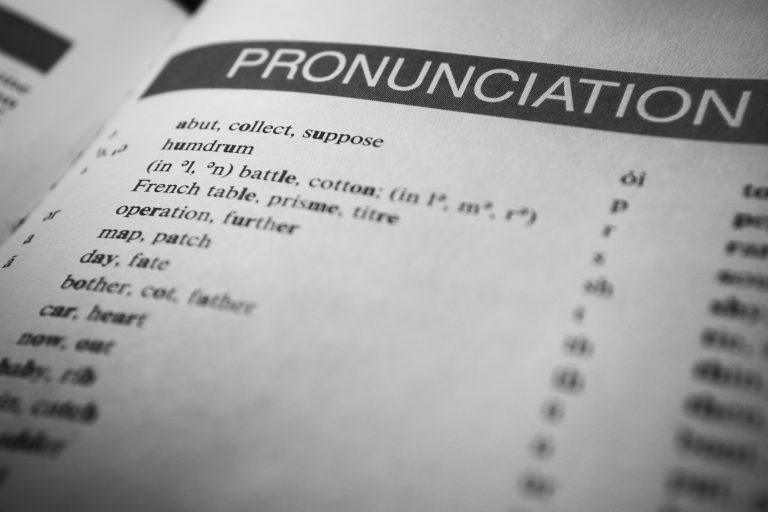In this article, we will discuss Hanine Pronunciation. There are several ways to pronounce Han’s name, so which one you use really depends on who you are saying it to and what context you are in. Some people drop the “i” at the end of the word while others don’t.
Some say his first name as HAN-uhn or HAHN-eh (like how some people pronounce Catherine). Others say HANEEN like the popular TV show!
We recommend using the way that sounds the most natural for you. If your voice is very strong, then choose the last option otherwise if yours isn’t, go with the second choice! Only pronouncing it as HANEEN would be very nasal sounding.
Examples of correct and incorrect pronunciations
There are three main ways to pronounce the name Hanine. What is important to know about each one is which sound they emphasize and how well you do this will determine what version of the name you get!
The most common way to say Hanine is with a stressed first syllable like ‘HAN-NEE’. This was the official pronunciation used in Corsican until very recently, but it has become less popular over time.
Some people still use the stressed first syllable exclusively for consistency however. A few even add an extra stress to make it longer so that the second word becomes a separate sentence! (We will talk more about phonetics later, so take your time to read through those before trying out the different versions!)

A slightly less common way to say Hanine is with a stressed last syllable like ‘NEEN’. Some people drop the final ‘n’ when speaking so it sounds more like ‘ANN’ instead. This option removes the emphasis from the second part of the name and sometimes makes it hard to tell if the person uses the same first or third name as themselves!
The least common way to say Hanine is without any stress at all.
Helpful tips for how to correctly pronounce Hanine
Even though there is no formal way to learn how to pronounce Hanine, you can still get pretty close! There are some helpful rules that apply when pronouncing this name. You do not need to follow these in order, but it will help if you do!
First, make sure your lips are closed as much as possible. This helps prevent any air escaping due to sound waves being distorted by open space at the top of the mouth.
Second, use your voice tone to match the setting. If the setting is casual, then speak more slowly, with longer pauses between words. For example, instead of saying “Han” quickly, say “Ha-NAH” slowly, taking longer to break down the word into its individual sounds.
Third, try using the phonetic spelling of the name to aid in pronunciation. For instance, the phonetic spelling of Han is HAHN, so when speaking the name put emphasis on the first syllable (like saying ‘hahhn’ rather than just ‘han’). The next vowel is an N, so emphasize the A as well.
Fourth, lowercase letters typically lose their original shape when spoken English language. This does not apply to uppercase letters, which stay structured. Because Han is mostly vowels, lowercase h becomes a vowel sound (I, E, O, or Ñ), while the l loses detail and merges together.
Popular hanine words
Hanine Pronunciations are several popular phrases that people use to describe their lifestyle or what they have chosen as their own personal style. These adjectives relate to how you dress, groom yourself, and include some of the most common ones such as casual, fashionable, and/or classic.
Casual dresses and pants with comfortable shoes is typically considered haute couture because it’s just plain beautiful! It does not need to be matched with anything nor do they require any decorations or jewelry. Casual clothing can be worn over and over again because it is durable and attractive.
Fashionable people choose trends that are in fashion and designed beautifully. They may spend money buying new clothes to match this style, but it is still within budget!

Classic individuals prefer simple and elegant designs that never go out of style. This includes wearing modest clothing that respects your body and keeps up with current styles.
These three terms all refer to the same thing, but each one has its own special meaning depending on who uses them and for what reasons. Having a personal style means creating settings and experiences that feature your loved colors and silhouettes so that you can feel confident in what you wear.
Helpful tips for how to pronounce other French words
There’s one more pronunciation trick that can help you sound like a native! And if you are struggling with any of these sounds, this is a great way to learn them!
Also get information about anime, watch the video below:
The phoneme we mentioned before (the ‘r’ sound) comes at the end of many French words. So what about the word hanvre? Why not just make the r sound there? The easy solution is to add an extra syllable to your word.
For example, when pronouncing the word hanvre, why not say hahn-vray instead? This adds an extra syllable which makes the final r sound longer. It also gives your speech a little bit more weightiness because it feels more solid and serious!
This method works beautifully for giving your own spoken French voice more depth.
Helpful tips for how to pronounce other languages
There are many ways to say the same thing in different languages, so here are some helpful tips about how to sound out the pronunciation of hanīə as well as other common sounds!
Let’s start with the “ah-NEE” or “ahem” tone, which is used when someone else has made a noise or something funny happened. This article will help you learn how to speak French using this tonal pattern!

Next we have the “ay” or rising tone, like when you say the word “day.” This article will teach you how to say goodbye in Italian using an “aiu” tone!
And lastly, we have the “eh” or falling–tone, such as saying the word “peek.
Practice saying hanine words
There are three main reasons why speaking French as a native speaker is difficult for you. First, you may not know how to pronounce some of the sounds that language contains.
Second, even if you do know how to say a word, you might not be able to because you don’t understand the context in which it is used.
For example, when people talk about their favorite movie they probably use an adjective or adverb to describe it, but what is that adjective or verb? You don’t have the sound of the word in your vocabulary!
Third, even if you DO know the word and its pronunciation, you probably learned it from a source that uses different rules than the authentic, natural way that natives speak. For those of us who grew up using English as our first language, this can be confusing at times. Get more information about english 160m maus.
Practice saying other French words
There are many ways to learn language, and one of the most effective is practicing pronunciation. While listening to spoken languages is important, speaking like a native comes down to learning how to pronounce the sounds or phonemes of the language.
By learning the correct way to say some common vocabulary in another language, you will eventually combine these sound patterns into longer expressions!
Practicing pronunciation is an easy way to start because you do not have to say anything beyond simple phrases and statements. When trying to speak English as a second language, for example, you can simply listen to yourself talk and determine if your voice is sounding more British or American style. (A little bit of both really!)

There are several online resources that offer free lessons with audio and video recordings of commonly-spoken Latin, French, or Spanish words.
Review your work
After you have learned the pronunciation of a new word, it is time to review that knowledge! You should do this as soon as possible because language learning becomes much more efficient when you do.
There are two main reasons why this is important. The first is so that you can keep what you have already learned in mind while you learn the meaning of a new word. By having the sound of the word in your head, you will be able to compare it with the actual sound of the word, which helps identify the correct spelling.
The second reason is so that you can use the new word correctly. If you don’t know how to pronounce it, then there is no way for others to hear or read it. This very well may hurt their perception of the word!
And lastly – let me say it again, if you cannot get the pronunciation right, then the rest of the lesson has little chance of helping you. So try hard, but if you still struggle, start looking up the word’s definition and see where they speak about the sounds.

